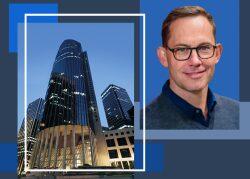Levi Strauss & Co. has cut a San Francisco headquarters lease deal to fit its budget.
After 18 months of arbitration with landlord Jamestown, the jeans giant has agreed to renew its lease for 367,000 square feet at 1155 Battery Street in Jackson Square, the San Francisco Business Times reported.
Financial terms of the 12-year lease were not disclosed.
Levi Strauss announced in the middle of last year that it had committed to renewing its headquarters lease at Levi’s Plaza, according to a regulatory filing. A disagreement with the landlord over the rate, however, held up a deal.
Both sides had been mired in arbitration since.
Jamestown, based in Atlanta, bought Levi’s Plaza in 2019 for $825 million. The 169-year-old apparel firm now takes up 40 percent of the garden-style complex, built in 1981.
While the headquarters lease renewal may boost San Francisco’s struggling office market, Levi Strauss now plans to list 100,000 square feet of its space for sublease, unidentified sources with knowledge of the company’s real estate strategy told the Business Times.
Neither Levi Strauss nor Jamestown confirmed a potential sublease.
The Levi Strauss deal ranks as the second-largest lease renewal in San Francisco since the dawn of the pandemic in 2020. The largest was Wells Fargo”s renewal last spring of its 622,000-square-foot headquarters at 333 Market Street, according to the Business Times.
In the largest sublease, Google took up 300,000 square feet at 510 Townsend from Stripe. Chime signed the largest new lease for 200,000 square feet at 101 California Street.
Before committing to a renewal at Levi’s Plaza, Levi Strauss had inquired about leasing part of the former Macy’s Men’s Store building at 120 Stockton Street, now known as 100 Stockton, in Union Square.
The 247,000-square-foot building, undergoing a makeover by owner Blatteis & Schnur, included 50,000 square feet of offices and 184,200 square feet of new shops and restaurants.
Levi Strauss aimed to add a flagship retail store and a Levi’s museum, but city planning officials pushed back, according to the newspaper. They said the proposal required additional office space not allocated under Prop M, the law limiting how much office space can be built in a year.
— Dana Bartholomew
Read more

